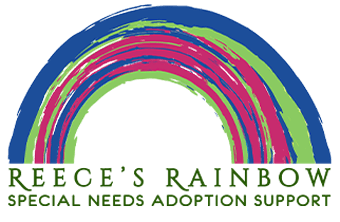Update 2024
Brody was born in 2015 and resides with a foster family. He is a smiley child. He is clinically and medically healthy. Brody has a cochlear implant but despite this, there is no clear evidence of hearing recovery. He vocalizes individual sounds without any meaning or meaning. He uses non-verbal means of communication to satisfy basic needs. He does not have a developed active and passive vocabulary for his age. Lacks developed speech. After the placement of the hearing implant, different-sounding sounds are heard more often, but it cannot be determined whether there is a connection with this. He has been assessed with moderate mental retardation with atypical autism, bilateral hearing
loss, a disorder in receptive and expressive speech, atypical communicative development, and delay in developmental stages.
He looks carefully at those around him. When stimulated, the child reacts, hugs and seeks contact with the foster parent. He smiles when teased, as well as gets angry when a toy he is interested in is taken away. According to information from the foster parent, there are no depressive and aggressive occurrences. He reacts to the absence of the foster parent and looks for her. According to information from the foster parent, the child is active in contacts with significant adults – both close and surrounding. Affectionate and seeking tenderness and attention from them. He takes a man by the hand to show him something he wants. No anxiety is observed when meeting a stranger but does not want to be left with strangers and reacts with grumbling and crying. He likes to be taken care of, smiles at caress and attention from adults. When observed, the boy moves steadily, independently and without assistance. Squats, stands, stretches and contracts arms. Climbing stairs with legs one after another. Handles objects equally with both hands. It is noticed that he walks on his toes. Climbs on chairs and sofas. His movements are chaotic – there is no real judgment of danger
Fine motor skills for the age are not well developed. No stacking of cubes is observed. Holds objects for a short time and throws them. The child does not have skills related to making coordinated movements with his fingers. Tries to play with constructor set but fails to assemble items. Under direct observation, he holds a pencil in his hand but shows no interest in the white sheet. It leaves no traces. With support, he manages to pull a zipper to fasten it. Unsustainable attention and concentration. Difficulty sharing attention. Orients himself in the space of the room, opens the door and wants to go outside. Does not recognize, does not name, does not show parts of his body. It has an orientation to the position of its body in space. Deal with obstacles by removing or bypassing them.
Brody does not use the toys as intended. Interest in the environment is chaotic. During the examination, chaotic play, grasping and scratching of the toys on the ground were observed. Plays with a given toy, but for a short time. According to information, when visiting a children’s corner or park, he prefers the same activities. He does not seek contact with peers, he is more interested in their toys. During observations in an outdoor environment / in a park / the boy walks and runs chaotically, no play activity is observed. Prefers to walk and walk holding hands.
In September 2022, the child was enrolled in the first grade at school, with classes taking place at the Center for Special Educational Support. There were a total of 7 children with different degrees of disability in the class. He was not able to adapt there and for this reason he was admitted to another specialized institution for the child to visit. At the time of preparation of his description to visit the center daily from 9:00 a.m. to 3:30 p.m. There he adapted very well to the new environment. A speech therapist, a psychologist, a rehabilitator and a resource teacher work with the child. Brandon feels very good at the center, interacting with the specialists. Physical therapy – passive and active – was carried out in the center. He did exercises for general strengthening of the body, improvement of independence and improvement of general motor patterns. Work was done on maintaining attention, stimulating fine motor skills and orientation in space, but it was not possible to carry out any educational activity, because of the lack of interest in the educational process. From the information received, he did not communicate with other children in the group, but accepted attention and proximity from the staff there.
Brody lacks developed self-care skills. From the information received from the caregiver, the child does not feed independently but uses a spoon with the support of an adult. He is on a general diet. The child is reported to have a good appetite. Differentiates the taste of food. Shows preferences for certain foods. He likes to eat sweet things. Constant salivation is observed. He is dependent on an adult for dressing and undressing, but according to the caregiver, he is involved and helps with dressing more than before. He undresses himself for sleep and when he needs to go to the bathroom. Brody is reported to be a restful sleeper, sleeping soundly at night and not waking up. The child uses a diaper all day. He cannot control and does not report when a physiological need arises.













